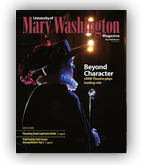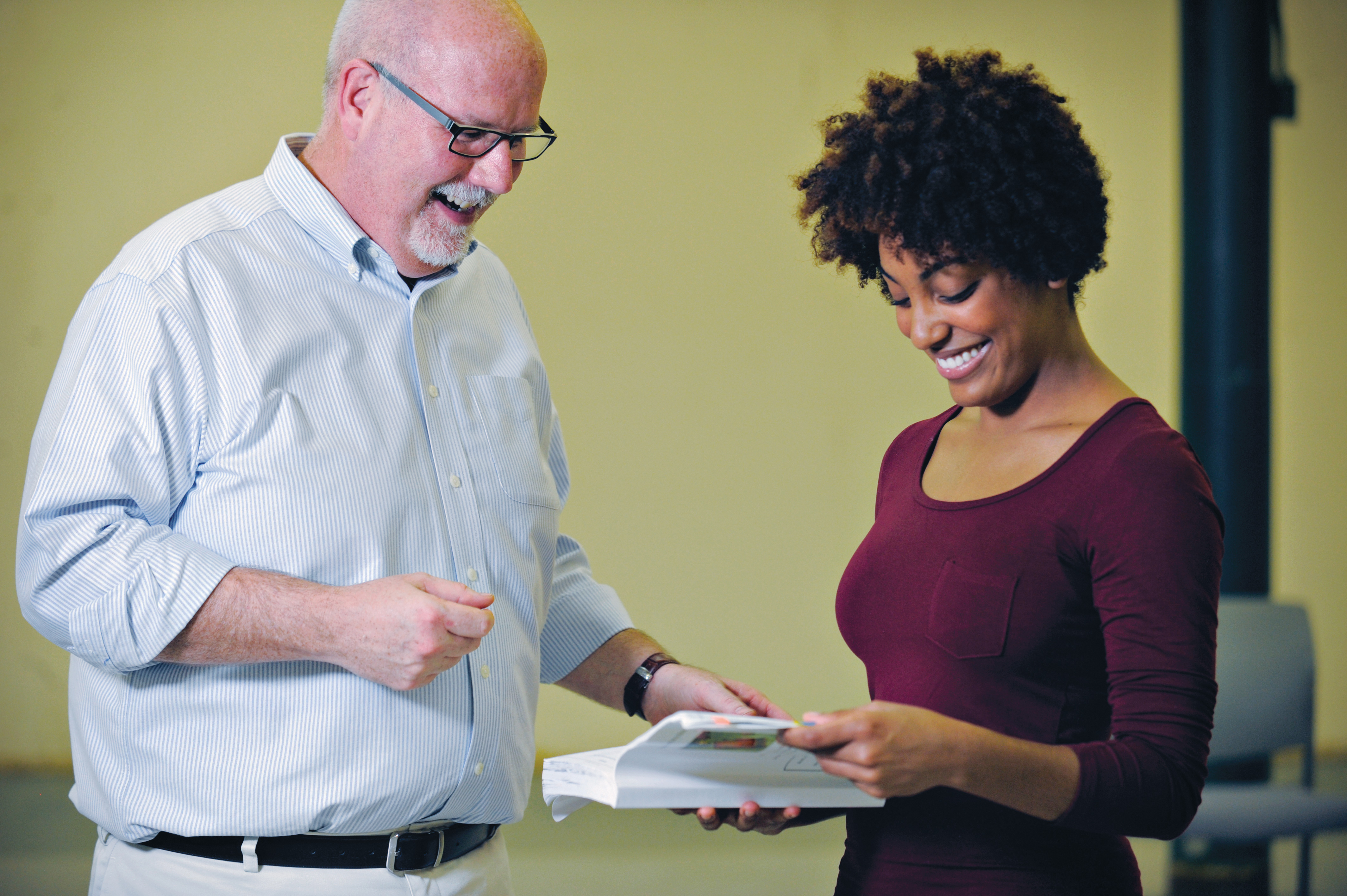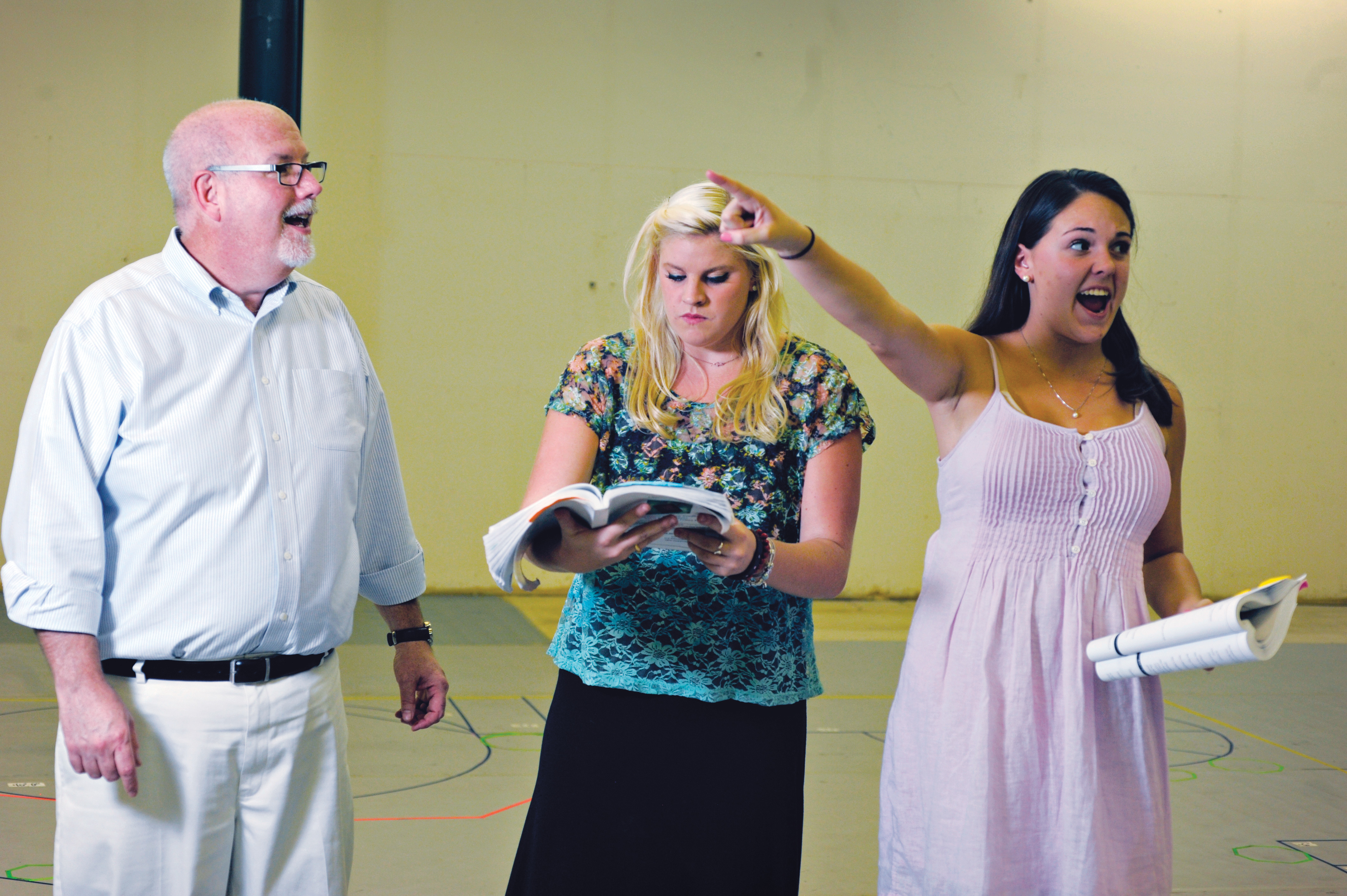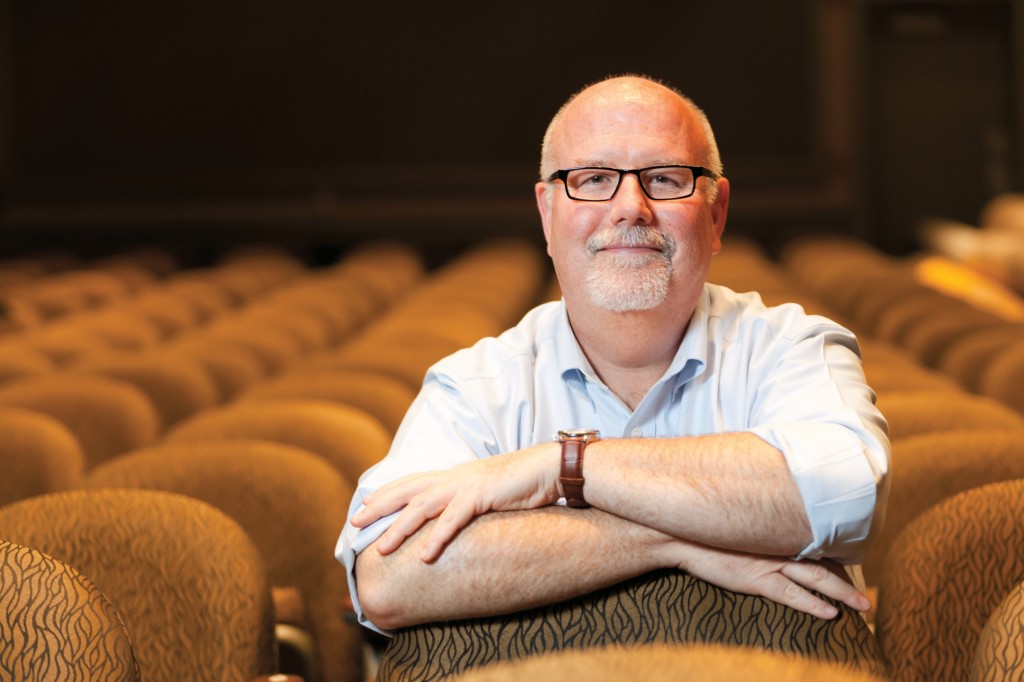
Stull’s passion for teaching goes beyond the classroom with both students and alumni. May 13-20, he will lead a UMW-sponsored tour of the London theatre scene from Shakespeare to the West End. Learn how to join the Alumni College on the Road trip at alumni.umw.edu/alumnicollegeroad/London. Photo by Geoff Green ’04.
Cinderella had just learned life is not a fairy tale. Her happily-ever-after marriage wasn·t. A vengeful giant, still on the loose, had killed the Baker’s wife. And the grief-stricken Baker had entrusted his baby to Cinderella.
Much to her relief, the Baker returned. He reached for his child, cradled in the arms of the princess.
Suddenly, with a few words from nearby, the scene from Into the Woods stopped.
On this October Friday night, the UMW Department of Theatre & Dance production rehearsed in a makeshift space in a storefront in Fredericksburg’s Eagle Village shopping center. Director Gregg Stull ’82, professor and department chair, kept a keen eye on the action. Their Nov. 1 premiere of the popular Sondheim musical was less than a month away.
“Wait, wait, wait,” Stull called. He walked into a large rectangle outlined with tape on the floor. It marked the dimensions of the Klein Theatre stage, where Talking With, the first show of the 2012-2013 season, had just closed. Until Klein was cleared and sets were built for Into the Woods, the ensemble had to rehearse in what once was Frank’s Nursery & Crafts store.
Stull asked Cinderella, Chelsea Raitor ’14, what was really happening in the scene, urging her to imagine how she might react. The Baker, played by Pietro Perrino ’13, had decided to man up, she said, to take responsibility, to do the right thing.
Stull listened to his student, then gave the smallest instruction. When you hand over the baby, Stull told Raitor, “Look in on him.”
Cinderella, cradling a swaddled Cabbage Patch doll in one arm and worn script in the other, tried again.
“Good, good, good,” Stull said, then returned to his seat. He would be up again in a moment helping to place Cinderella’s bird-friend characters around her, trying to get the actress comfortable as she talked to them, instructing her to follow the birds with her eyes as they fluttered off-stage. Then, it was time to start over.
“Let’s back up,” Stull said.
It is a historic theatre season at the University of Mary Washington. One hundred years ago, on Dec. 16, 1912, the school staged its very first production – Alice in Wonderland. Nearly three decades later, the college named its first director of dramatic arts. A major in dramatic arts within the Department of Arts and Speech soon followed.
Students held their earliest performances in an auditorium in Monroe Hall, the school’s first academic building. Later plays were staged in the outdoor amphitheater and Dodd Auditorium until the Little Theatre opened in duPont Hall in 1952. Now called Klein Theatre, it was renamed for beloved theatre professor Albert Klein a year after his unexpected death in 1970.
Over the century, Mary Washington students have staged everything from Louisa May Alcott’s chaste Little Women to The Laramie Project, the story of the murder of a gay University of Wyoming student. That production prompted six members of the Rev. Fred Phelps’ Westboro Baptist Church to travel from Topeka, Kan., to the Mary Washington campus to protest.
This year UMW Theatre will celebrate its centennial season by drawing from the diverse list of past performances.
Stull thought choosing from among them would be easy, but as he reviewed hundreds of titles, he found he was wrong. “It was very hard,” Stull said. “There were a lot of plays done here in the early years that don’t exist anymore. There are no copies.”
Picking his favorite productions was like a parent picking a favorite child. A group of faculty and students ultimately whittled the list to half a dozen titles.
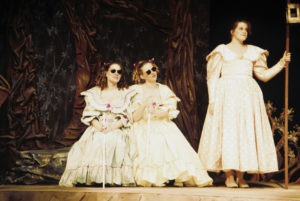
UMW Theatre last staged Into the Woods in 1995 in Klein Theatre. Emily Baird ’96, left, Emily Hilton ’98, and Jennifer Cleary ’96 were in the cast.
Into the Woods was last performed on campus in spring 1995. Stage manager and Mary Washington senior Will Chaloner ’13 described the musical as a coming-of-age story made up of fairy tale characters most any child could recognize.
For the students and faculty involved in production, the centennial is of little significance during grueling rehearsals, which can run four hours or more six or seven days a week.
But, “there’s been theatre on the hill here for 100 years,” Stull said. “That’s worthy of noting – how vital theatre is to this community.”
Director
In many ways Stull is the heart of the department. Other faculty, the staff, and the students are no less essential, but Stull is at the core. Ask those who have gone on to lead fulfilling and productive lives after collecting their theatre degrees from Mary Washington what they took from the experience, and time after time they point to the professor they’ve always called “Gregg.”
Stull challenged them, former students said, and he elicited the best from them. He made them stretch in ways they could not have imagined. And from the very start, he treated them as colleagues.
“I will tell them the truth,” Stull said.
If something is not working onstage, he lets them know. He gives them an honest, respectful critique.
“In a lot of ways, it’s hard to hear,” he said. “They’re used to being told how wonderful they are.”
But the tough love breeds growth.
Theatre students leave Mary Washington with an understanding of the entire theatrical process, from backstage to center stage. They leave, Stull hopes, with a mastery of the skills, but also with a better understanding of themselves.
Stull lets his students know right away that he is not the one with all the answers. “A lot of times, when students arrive at college, they’ve spent the last 12 years looking at the world in black and white, when in reality there is a lot of gray,” Stull said.
“I can’t tell them what a play means. They must tell me,” he continued. “There is no one way to interpret a role. To work with students, to open them up to that idea, it’s perilous in a lot of ways. It’s unlike anything else they’ve experienced educationally. They’ve been trained in intellect. We want them to also engage their emotional lives. It leaves students in a different place. Hopefully, they know more about themselves afterward. In the arts, there is a greater vulnerability. That’s what’s different about what we do.”
Stull came to Mary Washington as a student. His father was in the Air Force, and the family moved around a lot as he was growing up. His parents’ families were from Virginia, and he arrived at college in Fredericksburg in the late 1970s – “a very different place, a very different world, a lifetime ago,” he said.
Stull soon found his way to the theatre department. “Every play has its own community, its own life. I was drawn to that. It kept drawing me back. The theatre itself became more interesting to me as I learned more about it.”
At first, like most of those who choose theatre, he wanted to be an actor. Then Stull became interested in directing. A director, he said, is the primary storyteller. It is what he likes most about his work: To teach theatre, he said, “Is to teach storytelling.”
Stull graduated from Mary Washington in 1982, went to work in professional theatre, and earned a master of arts from the University of Maryland. In 1989, he returned to his alma mater to teach a class. Three years later, he joined the faculty.
Thirty years ago, Stull could not have imagined he’d be department chair at Mary Washington, much less marking a century of theatre.
“I’ve always been drawn back to teaching, to live the life of teaching. It seems to be my destiny. It suits me well,” he said. “Every single day is different.”
-
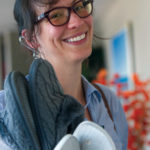 Martha Smith ’99 –
Martha Smith ’99 –
Set Costumer -
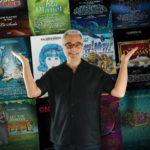 Robert Kerns ’81 –
Robert Kerns ’81 –
Entertainment Producer -
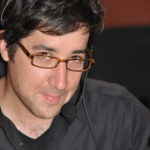 Brandon Prendergast ’95 –
Brandon Prendergast ’95 –
Stage Manager -
 Vanessa Elese ’01 –
Vanessa Elese ’01 –
Makeup Artist -
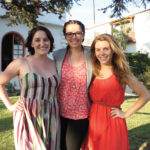 LA Trio ’03 & ’04 –
LA Trio ’03 & ’04 –
Working Actors -
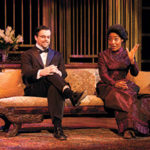 Anissa Felix ’13 –
Anissa Felix ’13 –
Student Actor
Teacher
Though Stull remained drawn to his profession, over time he saw that neither teaching nor learning is static. Today, he said, students learn differently.
Stull takes students to New York City for a marathon week of watching Broadway shows and meeting with professionals as part of a class he teaches every other year. “The excitement and thrill of being in the city was different for students 20 years ago,” he said. “Today students can click on the Internet and have a New York experience of sorts without ever leaving their residence halls. They can map it out; see the sites they will be visiting. They no longer have a sense of wonder, and that wonder is part of learning.”
The classroom had changed, and he wanted to understand why. In 2010, he took a sabbatical “for the sole purpose of learning how to be a student in today’s world.”
Stull looked for a subject that taught skills as well as ideas, something that would put him back in the classroom as a beginner. He found a professional culinary school in New York and Italy that offered a year of serious study of cooking and Italian.
There he discovered parallels among theatre students, his cooking-school peers, and himself. “Many of the culinary students, like our students, want to be stars,” Stull said. “But cooking is long, tedious work, with very few stars. For the first time in many years, my work was being critiqued. And it wasn’t very good. I remembered how bruising that could be.”
To finish out the year, the professor and department head went to a professional Michelin-rated restaurant kitchen in Quattro Castella, Italy. He started at the bottom.
“I was one of those lowly interns who doesn’t know anything, who’s trying not to be in the way and trying to please everyone. It re-engaged my empathy. It reminded me that I am a good teacher,” Stull said. “But it taught me a lot more about learning. That was the great surprise. I get it again, in a way I maybe have lost touch with over the years.”
Friend
It’s nearly three hours into Friday night rehearsal. Cinderella and the Baker have performed that poignant scene three times, four times, five times − so many times it’s easy to lose count.
With practice comes mastery. They will do this six days a week, then seven, until opening night.
When they don their costumes and step on the stage of the Klein Theatre, filled with parents, professors, and friends, they will be ready. Stull will make sure of that.
Later in their lives, some of the students he now directs will go on to work in the theatre. Others will find careers outside of the business.
In the beginning, recent graduates will phone Stull; they will ask for his advice, invite him to a production. He will answer, he will advise, and, more likely than not, he will accept the invitation. As the graduates become more comfortable in their new lives, their contact will become less frequent. But from time to time, they’ll still call their professor, their first mentor.
The University has recognized Stull’s dedication with its three top teaching honors: the Alumni Association Outstanding Young Faculty Member Award, the student-chosen Mary W. Pinschmidt Award, and the most prestigious − the Grellet C. Simpson Award. He is the only professor to have won all three.
And Stull’s devotion to students lasts; he is still in touch with many from his very first productions.
“What sets us apart,” he said of all UMW theatre faculty and their students, “is that we really subscribe to the philosophy that we are on a journey with them. We are colleagues in this; they can rely on us. They know they can rely on us to start their lives.”
And it doesn’t really matter whether they wind up in theatre.
“It’s about the fact that they find success, and I know our talented and dedicated faculty and staff are a part of their finding that.”
Now take a look at seven theatre alums: one who was a fellow Mary Washington undergrad with Stull and six who learned from him. Last, we talk to a young actor in her senior year. She played The Baker’s Wife in Into the Woods.
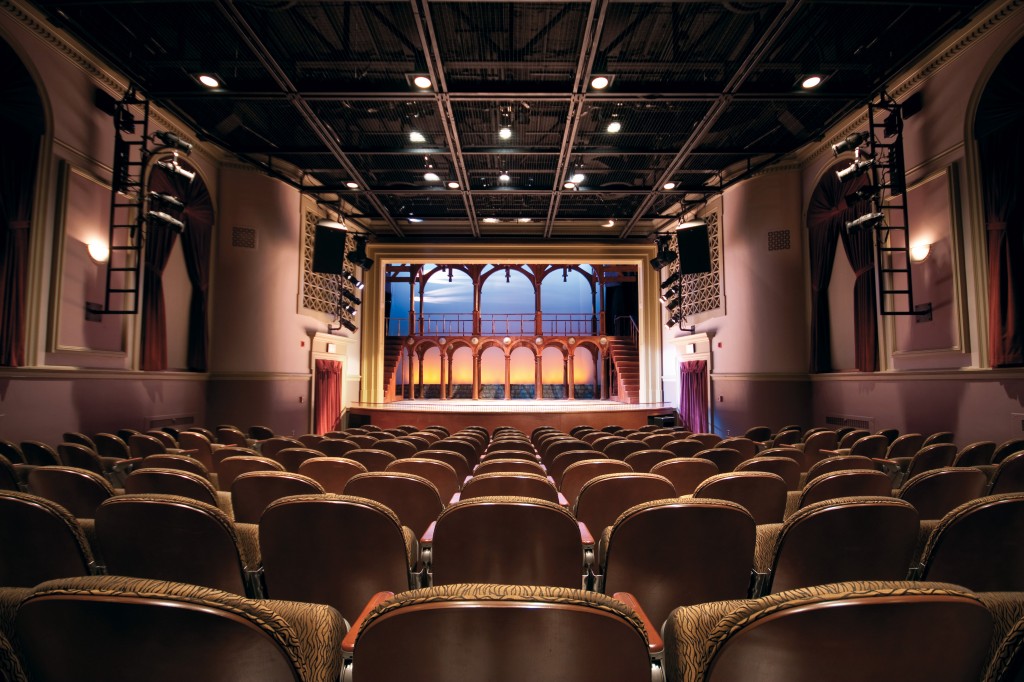
Klein Theatre is a space that binds us all together; it is at the very heart of all
that we do. All of our students spend countless hours in the building, rehearsing and performing. Our faculty work alongside them to create theatre in a process that – we hope – offers them ideas and skills to create extraordinary lives for themselves. – Gregg Stull
Theatre & Dance 2012-2013 SeasonSept. 20-30
|
Theatre faculty:Cate Brewer, actor Adjunct faculty:Kristen LePine, playwright Theatre staff:Kenny Horning, scene shop foreman |
